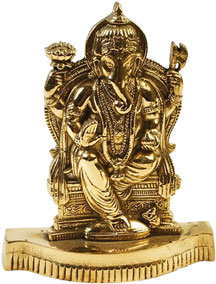Hinduism
 As far as we know, the first sacred literature were the Vedas (Rig Veda, Sama Veda, Yajur Veda and Atharva Veda), which consist of hymns to the various gods of the Hindu pantheon (which has uncountably many). The philosophy implied in the Vedas (ca. 4000 — 1500 B.C.) was made explicit in the Upanishads (600 - 300 B.C.). Overlapping and following the period of the Upahishads came the great narrative epic poems. These are the Ramayan, which tells of the adventures of the great hero Ram and his wife Sita (and ascribed to the poet Valmiki), and the Mahabharata (ascribed to the poet and sage Vyasa), which tells of the great hero Arjuna, and the great civil war in which he fought. The sixth book of the Mahabharata is the famous Bhagavad Gita, or Song of the Lord, which tells of the philosophic conversation between Arjuna and the god Krishna, who during his incarnation was Arjuna's chariot driver.
As far as we know, the first sacred literature were the Vedas (Rig Veda, Sama Veda, Yajur Veda and Atharva Veda), which consist of hymns to the various gods of the Hindu pantheon (which has uncountably many). The philosophy implied in the Vedas (ca. 4000 — 1500 B.C.) was made explicit in the Upanishads (600 - 300 B.C.). Overlapping and following the period of the Upahishads came the great narrative epic poems. These are the Ramayan, which tells of the adventures of the great hero Ram and his wife Sita (and ascribed to the poet Valmiki), and the Mahabharata (ascribed to the poet and sage Vyasa), which tells of the great hero Arjuna, and the great civil war in which he fought. The sixth book of the Mahabharata is the famous Bhagavad Gita, or Song of the Lord, which tells of the philosophic conversation between Arjuna and the god Krishna, who during his incarnation was Arjuna's chariot driver.
The gods, and indeed everyone and everything, are manifestations of a single divine principle called Brahman. The principal manifestations are three: Brahma - the Creator, Krishna (aka Vishnu) - the Sustainer, and Shiva - the Destroyer (who is also associated with eroticism). The manifesting and unmanifesting of Brahman creates and destroys the entire Universe in an endless series of long cycles. Thus what appears to be progress is illusory — it is but the change associated with this particular cycle.
In addition to this, Hinduism posits that every sentient being in the Universe is reincarnated countless times, until it attains Enlightenment and returns to the eternal Brahman, thus exiting the cycle of Birth and Death. Bad deeds negatively affect one's karma, leading to a less auspicious rebirth, and decreasing one's chance of becoming Enlightened in this lifetime and the next one (or even several).
This Hindu conception of Time is distinct from that of Judaism, Christianity and Islam, which implicitly hold that time is linear - that the Universe had a beginning and will have an end, and that one's actions take place in the context of an overall Divine Plan for the Universe. This leads to morality as a heightened concern on the part of monotheistic religions for conformity to what is perceived as God's Will, as distinct from Hinduism and Buddhism, which are concerned with morality as providing a shorter path to escape the suffering associated with the cycle of being reborn, living, dying, and being reborn again. An interesting parallel with Christianity is that Hindus believe Krishna became incarnated as a man for a single human lifetime (although Krishna's mortal life lasted 125 years, ending when he was shot accidentally by a hunter).
Hinduism is the progenitor of Buddhism, which is a simplification of Hinduism from uncountably many manifestations of Brahman to no god at all. That is to say, since you yourself are a manifestation of Brahman, and since Enlightenment is realizing your one-ness with Brahman, it facilitates Enlightenment to eschew conceptualizing Brahman as distinct from oneself, and vice versa.
Jainism is a sect of Hinduism that emphasizes non-violence, which leads many of its followers to take up professions that do no violence to any living or non-living thing, such as being a lawyer like that most famous Jain, Mahatma Mohandas K. Ghandi.
One of the bits of negative cultural baggage to which popular Hinduism in some parts of India still clings is the caste system, which classifies people as
- Brahmins (the priests and academics)
- Kshatriyas (rulers, military)
- Vaishyas (farmers, landlords, and merchants)
- Sudras (peasants, servants, and workers in non-polluting jobs), and
- and Dalits (Untouchables) who do labor that is considered polluting to one's body or soul.
India has officially disbanded the caste system and has enacted a number of anti-discrimination measures to ameliorate the situation of the Dalits, but more work needs to be done.
Hinduism has produced a system of medicine called Ayurveda, which arose from observation and anecdotal information, without benefit of statistically controlled trials, a germ-theory of disease, internal anatomy or surgery. What is remarkable about Ayurveda is the extent to which some of it works, despite these limitations. Finally, Hinduism in India has led to a rich musical tradition, in which a musical performance is a guided meditation of the audience by the performers. The Hindu varieties of meditation are called Yoga, and some of them involve various bodily movements and postures, because we are an integrated body-mind — the movement of one affects the movement of the other.
Hinduism has enjoyed a reputation of being tolerant of other religions, but has proved itself capable of being as violently intolerant and xenophobic as any other religion when it is politicized.
Hinduism Links
Hinduism, including links to online scriptures
Wikipedia article on Krishna
Resources for the Study of East Asian Language and Thought
See also our Asian section or our Religion Reading List.